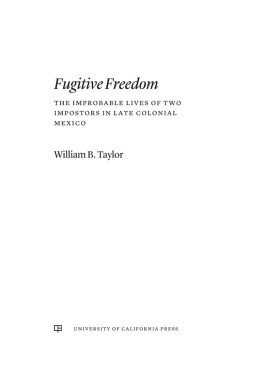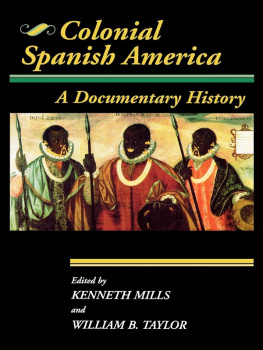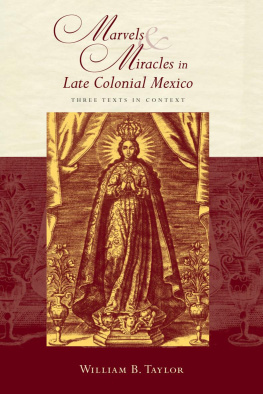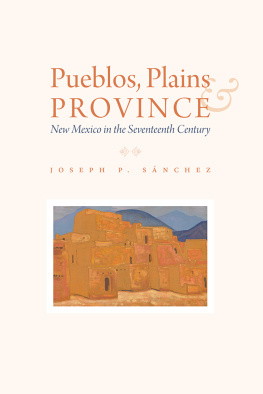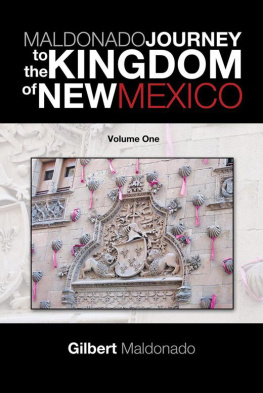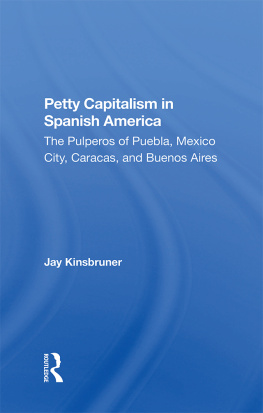The publisher and the University of California Press Foundation gratefully acknowledge the generous support of the Peter Booth Wiley Endowment Fund in History.
University of California Press
Oakland, California
2021 by William B. Taylor
Library of Congress Cataloging-in-Publication Data
Names: Taylor, William B., author.
Title: Fugitive freedom : the improbable lives of two impostors in late colonial Mexico / William B. Taylor.
Description: Oakland, California : University of California Press, [2021] | Includes bibliographical references and index.
Identifiers: LCCN 2020025987 (print) | LCCN 2020025988 (ebook) | ISBN 9780520368569 (cloth) | ISBN 9780520976146 (ebook)
Subjects: LCSH : Aguayo y Herrera, Joseph Lucas, 1747- | Atondo, Juan, 1783?- | Catholic ChurchMexicoHistory18th century. | Impostors and impostureMexico18th century. | Church and stateMexicoHistory18th century. | MexicoChurch history18th century.
Classification: LCC HV 6761. M 62 A 487 2021 (print) | LCC HV 6761. M 62 (ebook) | DDC 364.16/33092272dc23
LC record available at https://lccn.loc.gov/2020025987
LC ebook record available at https://lccn.loc.gov/2020025988
Manufactured in the United States of America
30 29 28 27 26 25 24 23 22 21
10 9 8 7 6 5 4 3 2 1
Preface
One of the first books I read about Mexican history was Norman Martins Los vagabundos en la Nueva Espaa: Siglo XVI (1957). To this novice historian of Latin America, it was a tantalizing point of entry into law and disorder. According to the decrees and commentary by Spanish viceroys and judges Martin cited, wandering strangers, paupers, impostors, and other cheaters speckled the countryside and loitered in cities throughout the sixteenth century, stirring up trouble. But his sources were silent on who the wanderers were, how they came to live as they did, what they cared about, and what their intentions were. Were they just an annoyance, or did they pose a serious threat to colonial society and public morals? Were there broad social changes stirring beneath the steady stream of decrees and administrative campaigns against them? Could their stories reveal something I was missing about the course of early Latin American history? The closest I could come in my reading to a life like these was Periquillo Sarniento, Mexicos famous fictional pcaro , conjured by Jos Joaqun Fernndez de Lizardi in 1816.
Finding that Martins colonial vagabundos were as elusive in the written record as they were on the ground, I moved on to better-documented subjects that promised to answer some of my questions about colonization and Latin America in formation: land systems, social and political life of colonial Indian villages, priests in their parishes, shrines, the material culture of devotion. Yet vagabundos and other people out of place kept me wondering what I was missing about the temper of the times and the social order.
This book introduces two colonial vagabundos , Joseph Aguayo and Juan Atondo, both of them small-time troublemakers and priest impersonators in central Mexico during the last decades of Spanish rule. Impersonating a priest was a serious crime against the state religion and its institutions that was sure to attract the Inquisitions attention, especially if the impersonator had jeopardized penitents prospects for salvation by pretending to confess and absolve them of their sins. The written record for Aguayo and Atondo is unusually rich, offering an opportunity to approach the personal histories and inner lives of two people at the margins of polite society. Doing so, and also examining others relationships to them, enlarges an understanding of colonialand, indeed, transoceanichistory by, first, recognizing that the Spanish colonial order was unfinished from the start, always coming apart as well as coming together, and, second, complicating prevailing social and spiritual ideals with the plebeian underworlds that haunted the imaginations of state builders throughout the colonial period. The lives and appetites of these two characters reminded me, and perhaps themselves, of Hispanic literary pcaros like Periquillo and the seminal Guzmn de Alfarache, but they were different, too, in some ways that still reflected a long-prevailing mood in Spanish and colonial Spanish American society of engao and a wary suspicion that most people, especially in this New World, were not who they appeared to be.
There have always been cheaters, liars, charlatans, and impostors, and I suppose many of us have been tempted to pull a fast one for personal advantage, but there are times when the big lies, misrepresentations, and impersonations are more pervasive, or at least more notorious. Europe and its dominions during the sixteenth, seventeenth, and eighteenth centuriesthe Early Modern Periodwas one of those times. (For example, in her 2012 book Renaissance Impostors and Proofs of Identity , Miriam Eliav-Feldon finds Europe then teeming with impostors.) While my purpose is not to explain this widespread opening for impostors in the Early Modern Period or how great disruptions and political and social changes then laid the foundation for even more frequent and outrageous impostures since the eighteenth century, the subject prompts hard questions that need to be kept in mind. Did the sweeping dislocations in the sixteenth century drive people who might otherwise have led commonplace lives to risk making their way by deception and betrayal? Or is it more that state builders and the public were especially alert to imposture then, and intent on enforcing order, uncertain about whether self-serving opportunists on the fringes of society were merely scoundrels or truly wicked and dangerous? Was the late eighteenth century, when Aguayo and Atondo lived, a time of more impostors and swindlers in Mexico? Perhaps not, and there are reasons to think that authorities then were more on the lookout for them and other lawbreakers.
There are no simple answers to these historical questions, or indeed to the psychosocial question of why impostors succeed, at least for a time. But they are compelling questions to me because we also live in unsettled times, erupting with fear of strangers in our lives who harbor schemes for private gain, attention, and political advantage, and with talk-show hosts cautioning their listeners that everything youre seeing is deception (present company excepted). There are internet bots let loose to spread lies and fear, replete with images Photoshopped to mislead; fraudulent attempts to obtain sensitive information from people who merely answer the phone or check their email; and swindlers on a grand personal scale. Included in that last group are Ponzi schemer Bernard Madoff; Elizabeth Holmes and her bogus blood-testing device; Dr. Paolo Macchiarini with his deadly synthetic trachea implants and fantastic lies to his wife and lovers; would-be socialite Anna (Sorokin) Delvey, who lived the high life in New York by deceiving wealthy acquaintances and employees of luxury hotels; and Enric Marco, who for decades basked in the reputation of a Holocaust survivor and Spanish Civil War hero.
Times of turbulent, systemic change bring opportunity as well as loss to the desperate and daring, giving rise to an abundance of shady opportunists who prey on the credulous with something to lose. Prevailing outlooks in such times are diffuse and hard to pin down, but they bend the local history of every impostor and his or her audience in ways that can sometimes raise an ordinary fraudster to wider notoriety. An outlook of the time and place that brought Aguayo and Atondo to light and both enabled and limited their success is an elusive subtext of this book.

